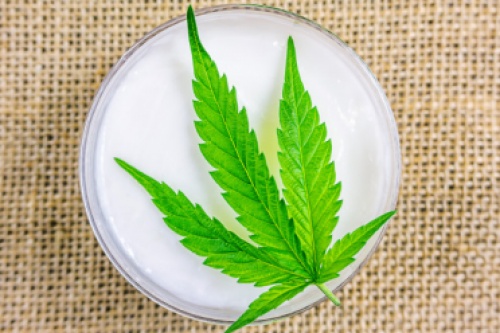You might have come across various options when considering CBD products. Full-spectrum, broad-spectrum, and CBD isolate are common options consumers encounter when shopping for CBD. These terms are used to describe the type of CBD oil used in a product.
Each type of CBD has a range of possible advantages, however, the chemical composition is slightly different for each. Here's a look at the difference between full and broad-spectrum CBD.
Full-Spectrum CBDFull-spectrum CBD is the purest, least filtered, and least processed hemp extract, meaning it contains all the beneficial compounds in the hemp plant including essential oils, cannabinoids, and terpenes. These function together in what is called the ‘entourage effect’ to improve the therapeutic benefits of each cannabinoid.
In a full-spectrum extract, the oil undergoes the cannabinoid filtration and extraction process. However, there's no removal of the cannabinoids or compounds. Although this spectrum has THC, it doesn't contain enough to result in a psychoactive reaction.
If you see this term on a label, ensure you check out the lab reports. While the industry hasn't regulated the terms, full-spectrum CBD tinctures will probably have THC in the formula. Most products originating from full-spectrum CBD typically contain less than 0.3% THC, which isn't enough to produce psychoactive effects.
Broad-Spectrum CBDBroad-spectrum CBD tinctures contain a range of cannabinoids and terpenes but lack THC. Essentially, broad-spectrum resembles full-spectrum but without THC. In this case, manufacturers must take their products through additional processing to generate broad-spectrum and eradicate any THC traces while at the same time preserving other cannabinoids and terpenes.
This spectrum is an excellent option for those who can't have any trace of THC in their bodies whether for medical, legal, or personal reasons. Broad-spectrum products, including CBD gel, oil and edibles, are also useful for those residing in states that have stringent laws regarding THC use.
Benefits of Full-Spectrum CBD Entourage EffectWhile some experts assert that CBD can be useful on its own, others suggest that its therapeutic effects are more potent when combined with other compounds, including flavonoids and terpenes. This is known as the entourage effect. Additionally, the THC available in full-spectrum products is believed to increase the pain-relieving and anti-inflammatory benefits of CBD.
AvailabilityFull-spectrum tinctures are widely available due to their popularity.
Cons of Full-Spectrum CBD Contains THCNot everybody wants THC in their products. You might be avoiding it for personal reasons or because you worry about it emerging on a drug test. This is a legitimate concern, particularly if you purchase mislabeled CBD products or those that contain more THC than they allege.
Benefits of Broad-Spectrum CBD Enhances physical and mental healthMore people are turning to CBD products to relieve anxiety and stress. As such, they have become a popular option for treating mental health issues. If you're looking for alternative or supplementary treatment options, you might want to consider broad-spectrum tinctures. Since this spectrum contains similar compounds as full-spectrum CBD, it could have a positive influence on neurologic difficulties and relax the mind.
Entourage Effect When various cannabinoids function in synergy, they employ the plant's therapeutic features to their full potential. Both broad and full-spectrum can create an entourage effect. While more research is essential to verify this claim, there's a high likelihood that the entourage effect could influence the body on both a physical and psychological level.















